Winning a Nobel Prize is one of the ultimate signs of a person’s impact on the world. But what about the biggest snubs in Nobel Prize history? For instance, think of Mahatma Gandhi, Steven Hawking, and Thomas Edison and the impact they have had in our lives and history, yet none of these exceptional human-beings have ever been awarded a Nobel Prize. It seems unbelievable that they have been omitted, yet Osamu Shimomura, Martin Chalfie, and Roger Y. Tsien have received a Nobel Prize for their work on green fluorescent protein or GFP. While this may be important, how many people will have a better life because of their discovery?
Biggest Snubs in Nobel Prize History
The list below is like a “who’s who” of leaders in their chosen industry. Some of these leaders deserve accolades and acknowledgment for the advances they have made in our history, yet they have never received the Nobel Prize.
We choose to honor them here.
Thomas Edison
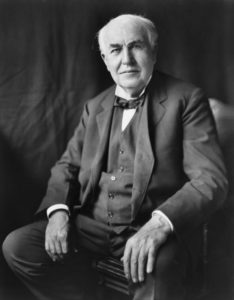 It is difficult to figure out why Thomas Edison is not on this list. He created the light bulb! Imagine our lives today if we did not have light at our fingertips with just a flick of the switch Edison during his life until today, was the embodiment of scientific inspiration and has had an enduring impact on our lives. If you look at the history of the prize, there were many Nobel Prize snubs in the theoretical and experimental segments. The Nobel Prize made a point of omitting many inventors and inventions, but hardly any of them have impacted modern life the way Thomas Edison has. Perhaps this needs to be re-examined for a posthumous award for his contribution to all of our lives.
It is difficult to figure out why Thomas Edison is not on this list. He created the light bulb! Imagine our lives today if we did not have light at our fingertips with just a flick of the switch Edison during his life until today, was the embodiment of scientific inspiration and has had an enduring impact on our lives. If you look at the history of the prize, there were many Nobel Prize snubs in the theoretical and experimental segments. The Nobel Prize made a point of omitting many inventors and inventions, but hardly any of them have impacted modern life the way Thomas Edison has. Perhaps this needs to be re-examined for a posthumous award for his contribution to all of our lives.
Mahatma Gandhi
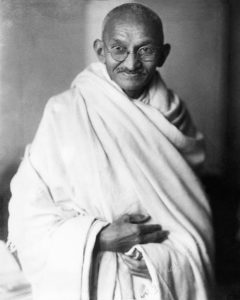
Despite being nominated for a Nobel Peace Prize in 1937, 1938, 1939, 1947, and 1948, he never received the honor. Gandhi is the embodiment of peace. His non-violent nature and ideas led India to find its’ independence in 1947. The committee never commented on why he did not receive the Nobel Prize. Many feel that he was a “shoo-in” to win the prize in 1948, but he was assassinated before he could gain his well-deserved recognition.
Stephen Hawking
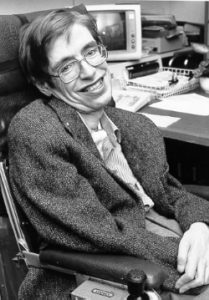 We would not know as much about black holes if it were not for Stephen Hawking. He is one of the most famous astrophysicists ever known. His discovery that black holes will eventually disappear created a unification between relativity theory and quantum mechanics. It is believed that because his theory could not be tested, he may have been omitted from receiving this coveted prize or even a nomination. Hawking was amused by this fact and joked about his snub frequently—even if it was through his automated voice.
We would not know as much about black holes if it were not for Stephen Hawking. He is one of the most famous astrophysicists ever known. His discovery that black holes will eventually disappear created a unification between relativity theory and quantum mechanics. It is believed that because his theory could not be tested, he may have been omitted from receiving this coveted prize or even a nomination. Hawking was amused by this fact and joked about his snub frequently—even if it was through his automated voice.
Eleanor Roosevelt
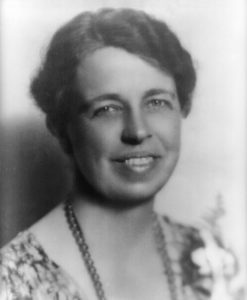 Perhaps one of the biggest snubs in Nobel Prize history was that of Eleanor Roosevelt. Though she was a First Lady of the United States, and overlooked because of the role her husband played in history, the snub is not warranted. Roosevelt gave her life fighting for civil rights for those less fortunate. While she was nominated many times, she never took home the coveted Nobel Prize. Eleanor’s work may not have been as obvious as other recipients, but she dedicated her life to enhancing the lives of the less fortunate.
Perhaps one of the biggest snubs in Nobel Prize history was that of Eleanor Roosevelt. Though she was a First Lady of the United States, and overlooked because of the role her husband played in history, the snub is not warranted. Roosevelt gave her life fighting for civil rights for those less fortunate. While she was nominated many times, she never took home the coveted Nobel Prize. Eleanor’s work may not have been as obvious as other recipients, but she dedicated her life to enhancing the lives of the less fortunate.
There are many others whose works were not acknowledged with a Nobel Prize, but as you can see from the list above, they are in good company. Many people have given of themselves, invented life-changing inventions, and discovered medical advances that still are in use today, yet they never received a Nobel Prize.
Leo Tolstoy
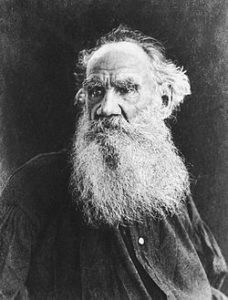 It seems unbelievable that one of the most universally recognized authors of any era has never been a novel prize winner. It may be one of the top Nobel Prize snubs. Tolstoy wrote some of the best classic novels written, with Anna Karenina and War and Peace. At the time, people noticed this snub, which was to go to “the most outstanding work in an ideal direction,” according to Alfred Nobel’s instructions. It is thought that Tolstoy’s snub, as well as those to Henrik Ibsen and Emile Zola, was because their work did not portray conservative idealism at the time. This may have led to them being omitted along the way to their deserved prize.
It seems unbelievable that one of the most universally recognized authors of any era has never been a novel prize winner. It may be one of the top Nobel Prize snubs. Tolstoy wrote some of the best classic novels written, with Anna Karenina and War and Peace. At the time, people noticed this snub, which was to go to “the most outstanding work in an ideal direction,” according to Alfred Nobel’s instructions. It is thought that Tolstoy’s snub, as well as those to Henrik Ibsen and Emile Zola, was because their work did not portray conservative idealism at the time. This may have led to them being omitted along the way to their deserved prize.
Related:
50 Universities with the Most Nobel Prize Winners
Most Controversial Nobel Prize Wins
